-
 bitcoin
bitcoin $87959.907984 USD
1.34% -
 ethereum
ethereum $2920.497338 USD
3.04% -
 tether
tether $0.999775 USD
0.00% -
 xrp
xrp $2.237324 USD
8.12% -
 bnb
bnb $860.243768 USD
0.90% -
 solana
solana $138.089498 USD
5.43% -
 usd-coin
usd-coin $0.999807 USD
0.01% -
 tron
tron $0.272801 USD
-1.53% -
 dogecoin
dogecoin $0.150904 USD
2.96% -
 cardano
cardano $0.421635 USD
1.97% -
 hyperliquid
hyperliquid $32.152445 USD
2.23% -
 bitcoin-cash
bitcoin-cash $533.301069 USD
-1.94% -
 chainlink
chainlink $12.953417 USD
2.68% -
 unus-sed-leo
unus-sed-leo $9.535951 USD
0.73% -
 zcash
zcash $521.483386 USD
-2.87%
What is jitoSOL?
jitoSOL allows Solana users to stake SOL while maintaining liquidity, offering enhanced yields through MEV optimization and DeFi integration.
Jul 18, 2025 at 09:36 pm
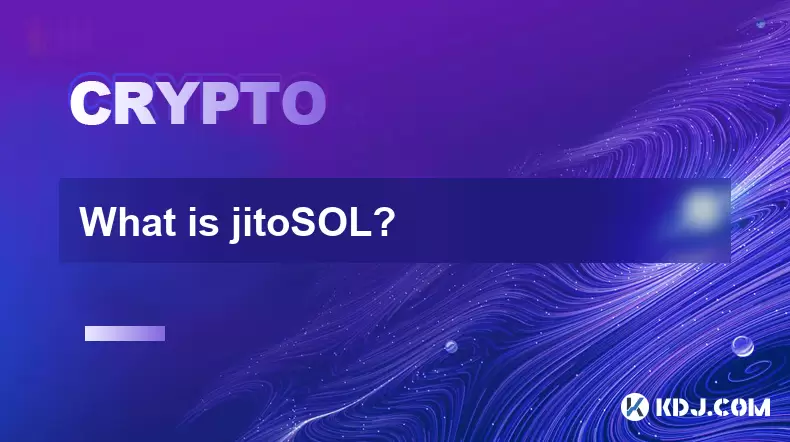
Understanding the Basics of jitoSOL
jitoSOL is a liquid staking token that represents a user’s stake in the Solana blockchain through the Jito Network. Unlike traditional staking, where users lock up their SOL tokens and lose liquidity, jitoSOL allows holders to maintain liquidity while earning staking rewards. This is achieved by issuing jitoSOL tokens in exchange for deposited SOL, which can then be used across various decentralized finance (DeFi) platforms.
The Jito Network is a decentralized network of validators that optimizes staking rewards by leveraging MEV (Maximal Extractable Value) strategies. By pooling resources and optimizing transaction ordering, Jito enhances the returns for stakers beyond what individual validators might achieve.
How jitoSOL Works
When a user deposits SOL into the Jito staking pool, they receive jitoSOL tokens in return. These tokens are pegged 1:1 with the value of SOL at the time of deposit but appreciate over time as staking rewards are accrued. The exchange rate between SOL and jitoSOL increases gradually, reflecting the compounded yield earned by the staked assets.
The validator network managed by Jito ensures high uptime and efficient reward distribution. Additionally, the MEV extraction process allows validators to reorder transactions in a way that maximizes the network’s revenue, which is then shared with stakers.
- Deposit SOL into the Jito staking contract.
- Receive jitoSOL tokens at a 1:1 ratio initially.
- Earn staking rewards passively as the exchange rate increases.
- Use jitoSOL in DeFi protocols for additional yield opportunities.
Benefits of Using jitoSOL
One of the primary advantages of jitoSOL is its liquidity. Unlike standard staking, where tokens are locked and unusable, jitoSOL holders can freely trade or use their tokens within the broader DeFi ecosystem. This opens up opportunities for yield farming, lending, and borrowing without unstaking.
Another major benefit is enhanced yield through MEV optimization. Traditional staking offers a fixed return based on network inflation and validator performance. However, Jito’s MEV strategies can significantly boost the returns for stakers by capturing value from transaction ordering.
- Liquidity retention while earning staking rewards.
- Higher yield potential via MEV capture.
- Compatibility with DeFi protocols on Solana.
- Decentralized and trustless staking mechanism.
Risks and Considerations
Despite its benefits, jitoSOL is not without risks. As a liquid staking token, it depends on the security of the underlying protocol and smart contracts. Any vulnerability or exploit in the Jito system could lead to loss of funds.
Another risk is impermanent loss, particularly when using jitoSOL in liquidity pools. Since the value of jitoSOL appreciates over time relative to SOL, providing liquidity may expose users to price divergence if the exchange rate changes significantly.
- Smart contract vulnerabilities could lead to fund loss.
- Validator slashing risks if a validator misbehaves.
- Exchange rate volatility may impact DeFi positions.
- Regulatory uncertainty around staking derivatives.
Getting Started with jitoSOL
To begin using jitoSOL, users need a compatible Solana wallet such as Phantom or Solflare. The process involves connecting the wallet to the Jito staking interface, approving the transaction, and depositing SOL to receive jitoSOL.
After depositing, users can track their jitoSOL balance and accrued rewards directly in their wallet. For those interested in maximizing returns, integrating jitoSOL into DeFi applications like marginfi or Kamino Finance can provide additional yield opportunities.
- Set up a Solana wallet and fund it with SOL.
- Visit the Jito staking platform and connect your wallet.
- Approve the deposit transaction and send SOL to the contract.
- Receive jitoSOL tokens and monitor your balance and rewards.
- Explore DeFi integrations to utilize your jitoSOL tokens.
Frequently Asked Questions
What is the difference between jitoSOL and stSOL?jitoSOL and stSOL are both liquid staking tokens on Solana, but they come from different protocols. jitoSOL is issued by the Jito Network, which focuses on MEV optimization, while stSOL is issued by Lido Finance, a well-known liquid staking provider. The key difference lies in the validator network and reward mechanisms.
Can I unstake my SOL from jitoSOL anytime?Yes, you can unstake your SOL by redeeming jitoSOL tokens through the Jito interface. However, unstaking may take some time depending on the network conditions and validator availability. There is also a possibility of delayed withdrawal periods during high network congestion.
Is jitoSOL audited and secure?The Jito Network has undergone multiple security audits by reputable firms to ensure the safety of its smart contracts. However, like any DeFi protocol, it is not 100% risk-free. Users should always assess the audit reports and community feedback before depositing funds.
How does MEV affect jitoSOL rewards?MEV (Maximal Extractable Value) increases the rewards for jitoSOL stakers by allowing validators to optimize transaction ordering for profit. This means jitoSOL holders benefit from additional yield beyond standard staking returns, which is distributed proportionally across all stakers.
Disclaimer:info@kdj.com
The information provided is not trading advice. kdj.com does not assume any responsibility for any investments made based on the information provided in this article. Cryptocurrencies are highly volatile and it is highly recommended that you invest with caution after thorough research!
If you believe that the content used on this website infringes your copyright, please contact us immediately (info@kdj.com) and we will delete it promptly.
- Beyond the Forecast: Is Carol Kirkwood's Departure a Whisper of BBC's Lingering 'Token Woman' Problem?
- 2026-02-01 16:25:01
- Bitcoin Plunges Amidst Liquidity Worries: A Record Low for Crypto Sentiment?
- 2026-02-01 16:25:01
- Pi Network's Mainnet: A Crypto Milestone Unveils a Complex Market Picture
- 2026-02-01 16:20:02
- Top Watch: Emerging Cryptocurrencies Charting New Territories in 2026
- 2026-02-01 16:15:01
- Wall Street Whales, DeFi Dynamos, and the Cross-Asset Surge: Decoding BTC, ETH, and Hyperliquid's Latest Plays
- 2026-02-01 13:00:02
- Dogecoin's Identity Crisis: From Meme Darling to Digital Identity Quandary
- 2026-02-01 16:15:01
Related knowledge
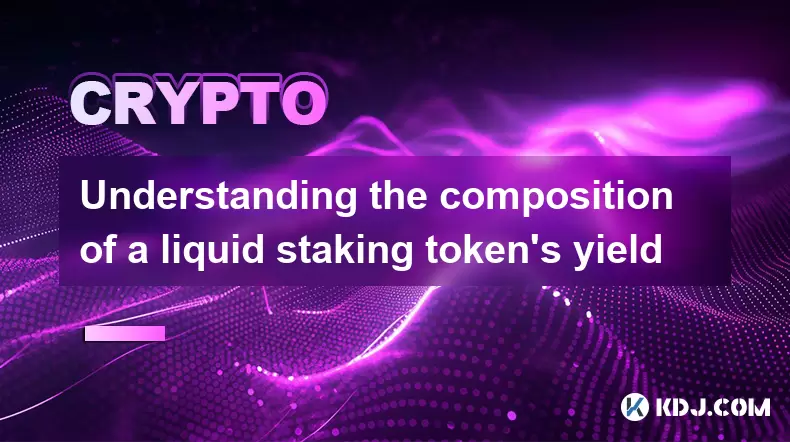
Understanding the composition of a liquid staking token's yield
Jul 20,2025 at 09:07am
What Is a Liquid Staking Token?A liquid staking token is a representative asset issued to users who stake their native cryptocurrency on a proof-of-st...
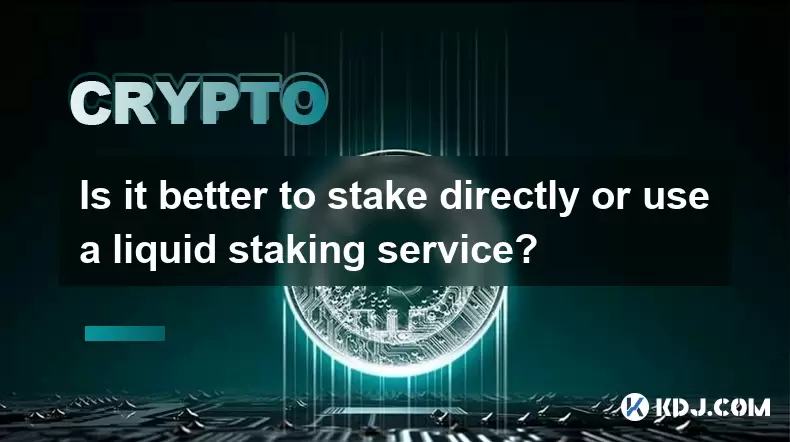
Is it better to stake directly or use a liquid staking service?
Jul 22,2025 at 08:21pm
Understanding the Basics of StakingStaking in the context of blockchain and cryptocurrency refers to the process of locking up digital assets to suppo...
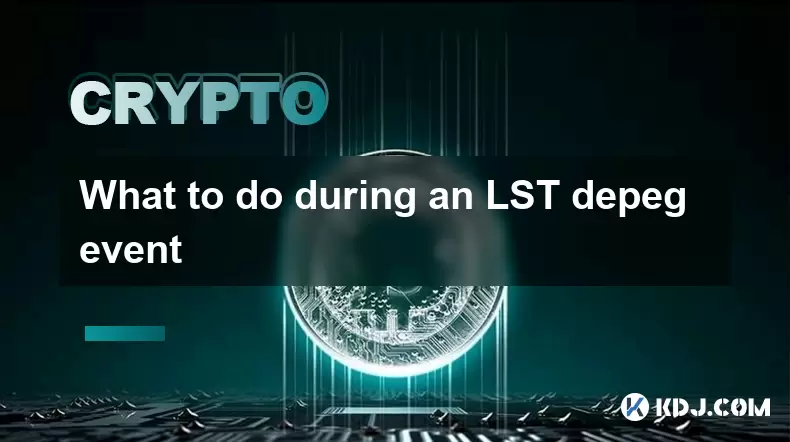
What to do during an LST depeg event
Jul 20,2025 at 04:57pm
Understanding LST Depeg EventsAn LST (Liquid Staking Token) depeg event occurs when the token, which is typically pegged to the value of the underlyin...
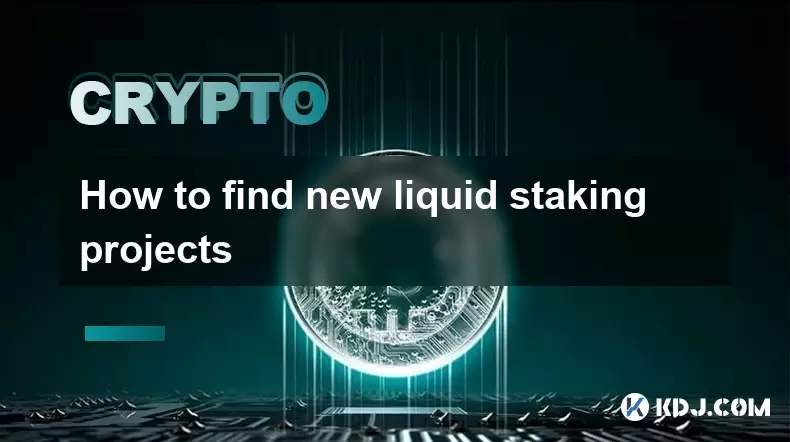
How to find new liquid staking projects
Jul 30,2025 at 01:14pm
Understanding Liquid Staking and Its ImportanceLiquid staking is a mechanism that allows users to stake their cryptocurrency assets while still mainta...
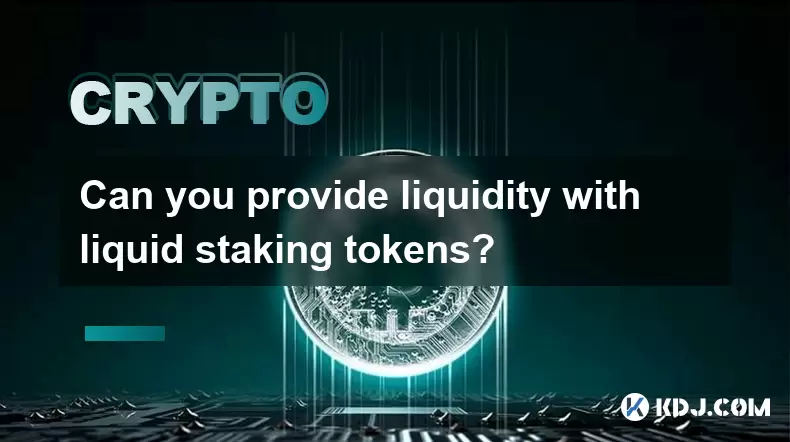
Can you provide liquidity with liquid staking tokens?
Jul 22,2025 at 10:22am
Understanding Liquid Staking TokensLiquid staking tokens (LSTs) are derivative tokens that represent staked assets on a proof-of-stake (PoS) blockchai...
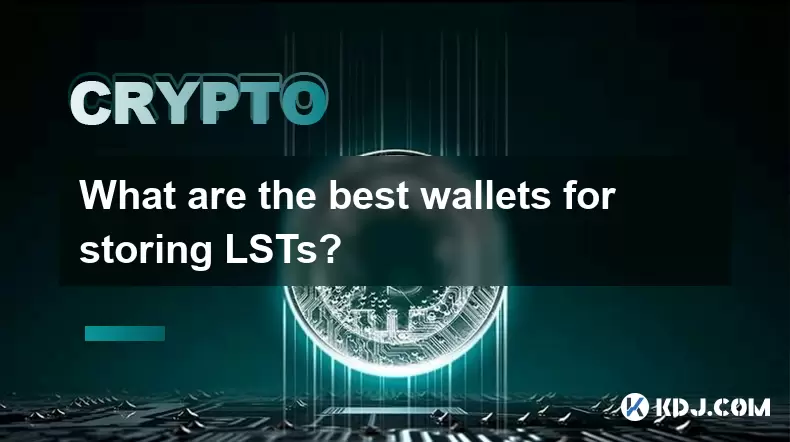
What are the best wallets for storing LSTs?
Jul 21,2025 at 03:14pm
Understanding LSTs and the Need for Secure StorageLSTs, or Liquid Staking Tokens, are derivative tokens representing staked assets on a blockchain. Wh...

Understanding the composition of a liquid staking token's yield
Jul 20,2025 at 09:07am
What Is a Liquid Staking Token?A liquid staking token is a representative asset issued to users who stake their native cryptocurrency on a proof-of-st...

Is it better to stake directly or use a liquid staking service?
Jul 22,2025 at 08:21pm
Understanding the Basics of StakingStaking in the context of blockchain and cryptocurrency refers to the process of locking up digital assets to suppo...

What to do during an LST depeg event
Jul 20,2025 at 04:57pm
Understanding LST Depeg EventsAn LST (Liquid Staking Token) depeg event occurs when the token, which is typically pegged to the value of the underlyin...

How to find new liquid staking projects
Jul 30,2025 at 01:14pm
Understanding Liquid Staking and Its ImportanceLiquid staking is a mechanism that allows users to stake their cryptocurrency assets while still mainta...

Can you provide liquidity with liquid staking tokens?
Jul 22,2025 at 10:22am
Understanding Liquid Staking TokensLiquid staking tokens (LSTs) are derivative tokens that represent staked assets on a proof-of-stake (PoS) blockchai...

What are the best wallets for storing LSTs?
Jul 21,2025 at 03:14pm
Understanding LSTs and the Need for Secure StorageLSTs, or Liquid Staking Tokens, are derivative tokens representing staked assets on a blockchain. Wh...
See all articles
























![[Audio stories] Streamer Became a Billionaire Overnight After Buying One Junk Coin [Audio stories] Streamer Became a Billionaire Overnight After Buying One Junk Coin](/uploads/2026/02/01/cryptocurrencies-news/videos/origin_697eaa9a495ed_image_500_375.webp)

















































